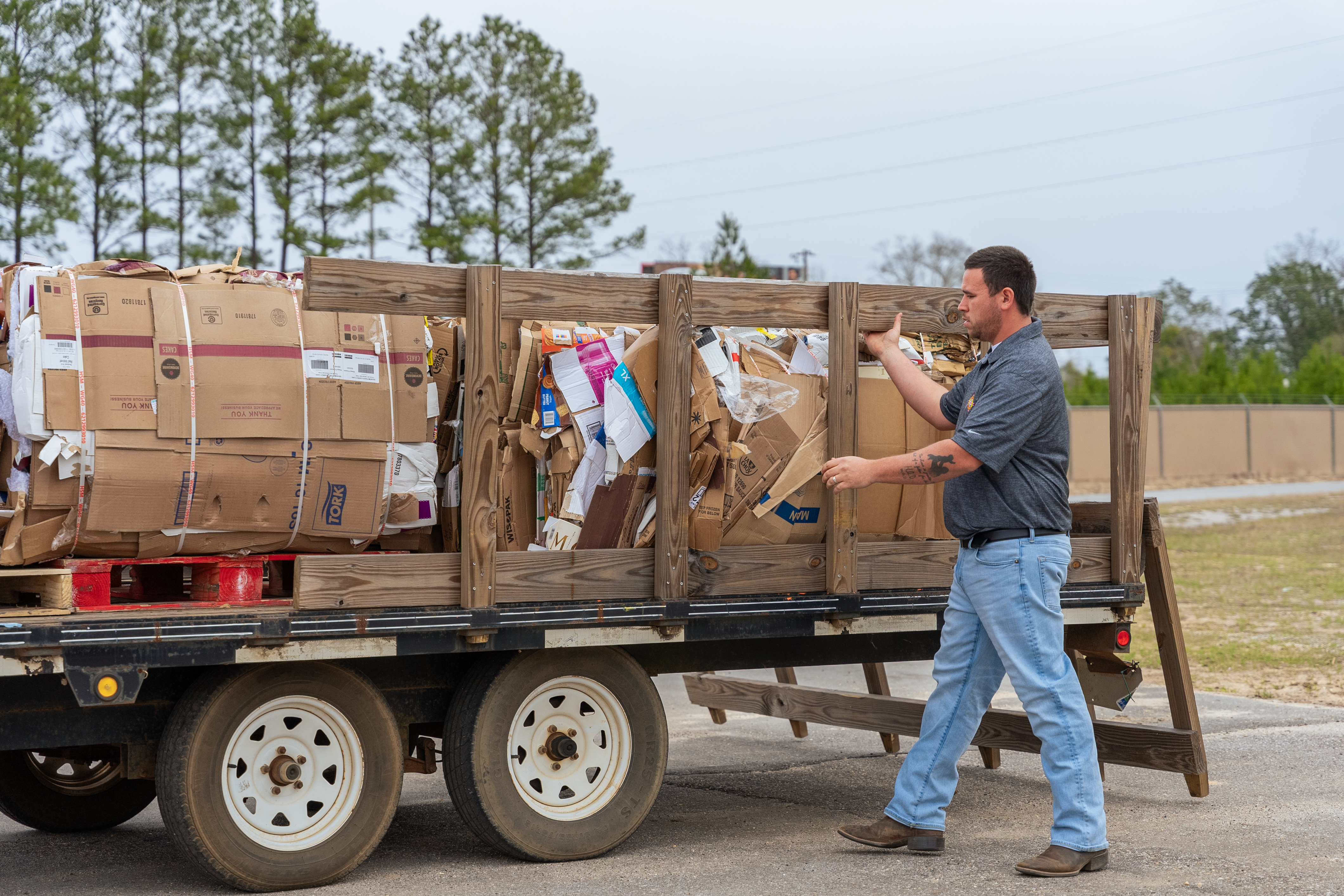
- Details
- By Native News Online Staff
The Poarch Band of Creek Indians, the only federally recognized tribe in Alabama, was recently awarded the Solid Waste Infrastructure for Recycling (SWIFR) Grant for Tribes in the amount of $787,397 from the Environmental Protection Agency, as part of a grant program funded through the Bipartisan Infrastructure Law (BIL).
The SWIFR Grant Program is a covered program under the Justice40 Initiative which aims to deliver 40 percent of the overall benefits of climate, clean energy, affordable and sustainable housing, clean water, and other investments to disadvantaged communities.
The tribe has been working with officials at the city of Brewton, Alabama for several years to grow a healthy relationship for both environmental education and active recycling efforts. “This valuable investment will give us the opportunity to continue to improve waste material management in our communities, and greatly enhance our recycling abilities,” said Yank Lovelace, Mayor of Brewton.
“Through this grant, we will be able to conduct a recycling feasibility and sustainability study to make improvements needed, provide education and outreach, as well as increase community recycling by providing more community recycling containers,” Kristi Weatherford, Poarch Band of Creek Indians Director of Environmental Programs said. “We are excited to continue our work with local partners like the City of Brewton, in growing a healthy relationship for both environmental education and active recycling efforts.”
The partnership between the Poarch Band of Creek Indians and the City of Brewton has been key for growing environmental efforts in the rural portion of the state and has been identified as a successful model for other small towns to follow. While other cities may be abandoning their recycling efforts, the Poarch Band of Creek Indians are looking to expand both availability to the public, and a growing list of recyclables.
Currently, the Poarch Band of Creek Indians Recycling program, located at 4447 Hwy 21 South, Atmore, AL, accepts a variety of materials from the community including, paper, cardboard, plastic bottles, aluminum cans, as well as electronics, appliances, light bulbs, household batteries, ink cartridges, and toner.
The Poarch Band of Creek Indians hosts an annual Household Hazardous Waste and Electronic Recycling Event annually for the entire community, which is scheduled for April 27, 2024.
More Stories Like This
Michigan Tribes Tell Supreme Court: Don’t Bail Out EnbridgeAlaskans Raise More Than $1 Million For Communities Devastated by Typhoon Halong
A True American Tale: Indigenous Rights vs. Corporate Greed
In photos: Residents of Western Alaska Share Storm Damage of Ex-Typhoon Halong
Where the Buffalo Roam: Tribes Lead Bison Return for Food Sovereignty
Help us tell the stories that could save Native languages and food traditions
At a critical moment for Indian Country, Native News Online is embarking on our most ambitious reporting project yet: "Cultivating Culture," a three-year investigation into two forces shaping Native community survival—food sovereignty and language revitalization.
The devastating impact of COVID-19 accelerated the loss of Native elders and with them, irreplaceable cultural knowledge. Yet across tribal communities, innovative leaders are fighting back, reclaiming traditional food systems and breathing new life into Native languages. These aren't just cultural preservation efforts—they're powerful pathways to community health, healing, and resilience.
Our dedicated reporting team will spend three years documenting these stories through on-the-ground reporting in 18 tribal communities, producing over 200 in-depth stories, 18 podcast episodes, and multimedia content that amplifies Indigenous voices. We'll show policymakers, funders, and allies how cultural restoration directly impacts physical and mental wellness while celebrating successful models of sovereignty and self-determination.
This isn't corporate media parachuting into Indian Country for a quick story. This is sustained, relationship-based journalism by Native reporters who understand these communities. It's "Warrior Journalism"—fearless reporting that serves the 5.5 million readers who depend on us for news that mainstream media often ignores.
We need your help right now. While we've secured partial funding, we're still $450,000 short of our three-year budget. Our immediate goal is $25,000 this month to keep this critical work moving forward—funding reporter salaries, travel to remote communities, photography, and the deep reporting these stories deserve.
Every dollar directly supports Indigenous journalists telling Indigenous stories. Whether it's $5 or $50, your contribution ensures these vital narratives of resilience, innovation, and hope don't disappear into silence.
 The stakes couldn't be higher. Native languages are being lost at an alarming rate. Food insecurity plagues many tribal communities. But solutions are emerging, and these stories need to be told.
The stakes couldn't be higher. Native languages are being lost at an alarming rate. Food insecurity plagues many tribal communities. But solutions are emerging, and these stories need to be told.
Support independent Native journalism. Fund the stories that matter.
Levi Rickert (Potawatomi), Editor & Publisher

